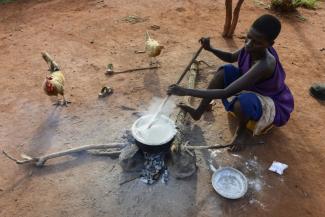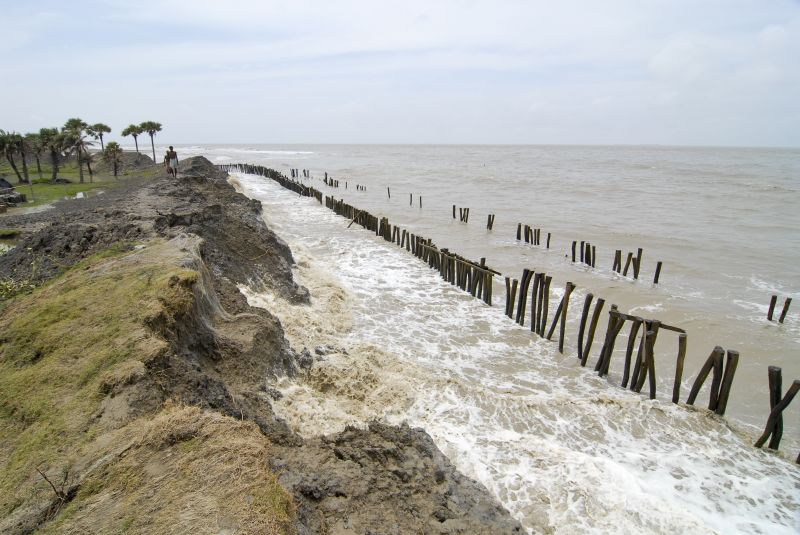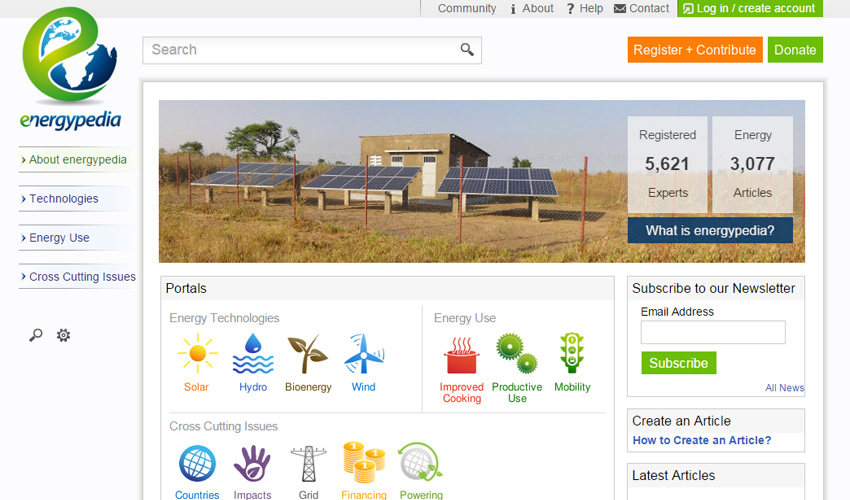Internet
Spreading development-relevant information

A billion people have no electricity, spending evenings in the dark or having to use paraffin lamps or candles. Access to energy is vital for every form of development, for education, health, nutrition, in private enterprises and social institutions.
In times of climate change, it is also extremely important to put energy supply on a sustainable footing. Energy-saving technologies and the use of renewable energy sources can provide crucial impetus, especially for developing and emerging economies. What is more, decentralised energy generation from the sun, wind, water or wood and other biomass will be the only energy supply option for the foreseeable future in many remote areas.
Spreading and harnessing appropriate technologies in developing countries calls for specialised knowledge. The online platform energypedia makes that expertise freely accessible. Experts share their knowledge and experience online, so the information is no longer available just within a project, country or organisation; it is available to everyone worldwide. The wiki platform thus permits direct south-south exchange.
Experts in Rwanda, for example, have benefited from the experience of Bolivian counterparts in the use of special biogas plants. It does not make sense to reinvent the wheel again and again. As energypedia co-founder and managing director Robert Heine points out, “energypedia is primarily a platform for networking experts and specialist knowledge but it is also designed to make development cooperation more efficient, transparent and effective.” (See main article.)
What is a wiki?
Technically speaking, a wiki is a collection of web pages designed to enable users to create or modify pages and content at any time without any programming skills. Users are able not only to read web pages but also to contribute to their content (see main article). Wikis are thus Web 2.0 sites. The best known example of a wiki is the online encyclopaedia Wikipedia. energypedia uses its freely available software.









